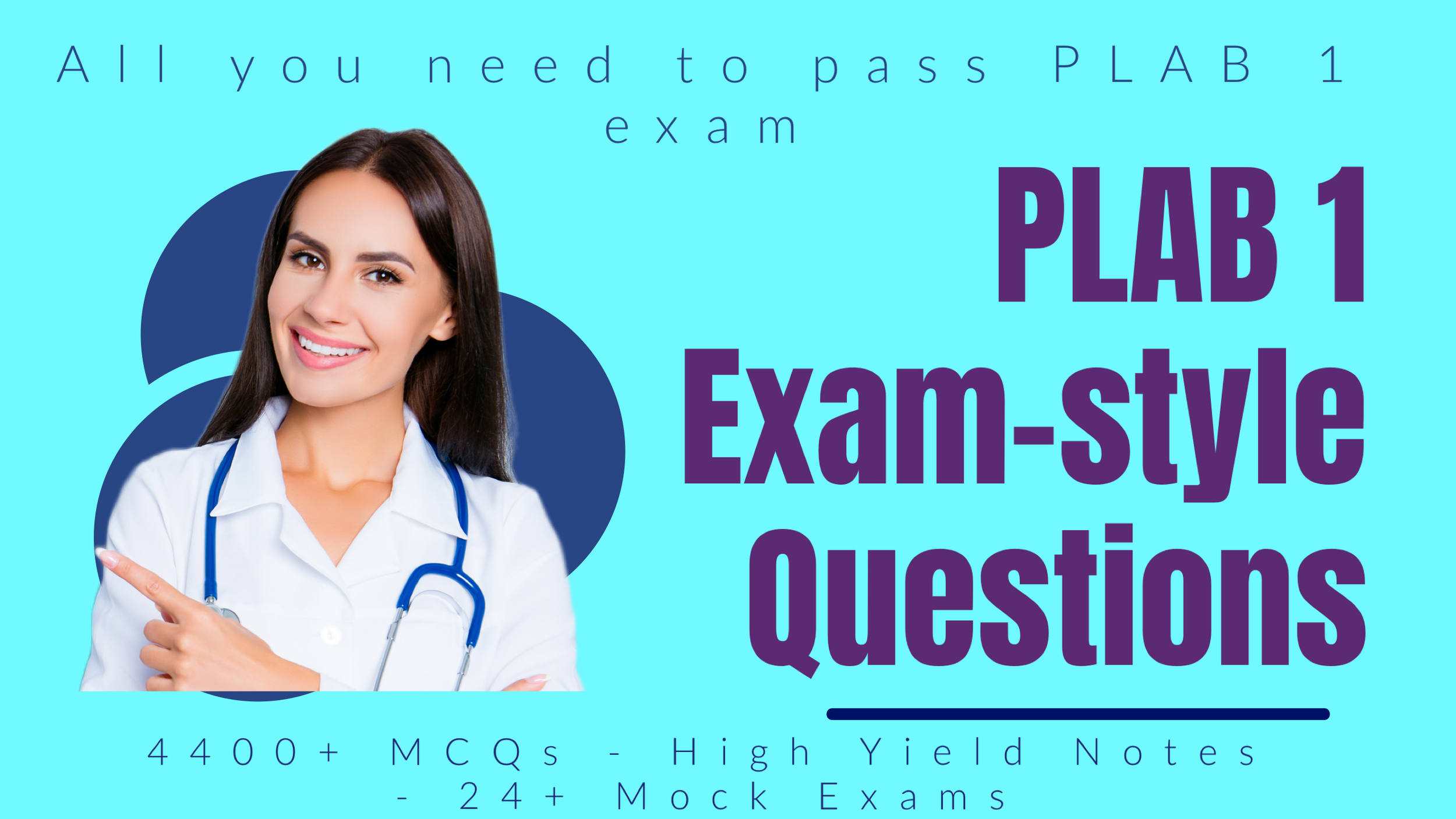Evolving Nature of PLAB 1 Exam Questions: A Closer Look
Ever wondered about the changes in the PLAB 1 exam questions over the years? And is the PLAB 1 exam harder than before? Is the MLA exam causing it?. Let's dive deep into its transformation from straightforward questions to the current layered and intricate ones.
A Walk Down Memory Lane
Here's an early PLAB 1 question to kick things off:
Question 1: A 46-year-old African-Caribbean man presents with a repeated blood pressure measurement of 160/90 mmHg on three separate clinic visits. Elevated blood pressure, especially when consistently observed, may be indicative of hypertension and requires appropriate management to reduce the risk of cardiovascular complications. Given his profile and the available options, what would be the best initial treatment for him?
A. ACEi
B. Beta-blockers
C. ARBs
D. None
E. CCB
Answer: E
Fast forward to a slightly more recent question:
Question 2: A 62-year-old woman with a history of obesity is found to have a clinical blood pressure of 167/92, 170/95, and 168/90 mmHg. She was given a 24-hour ambulatory blood pressure monitoring (ABPM) device to take home. She returned the following week with an average reading of 158/93 mmHg. Her only medical history is well-controlled type 2 diabetes mellitus. What is the single most appropriate initial medication?
A. Lifestyle modifications only
B. Metoprolol
C. Hydrochlorothiazide
D. Amlodipine
E. Losartan
Answer: E
Notice the additional layer? The inclusion of the patient's medical history of diabetes mellitus. But the complexity doesn’t end there. As the exam evolved, not only did the questions become more intricate, but they also got longer, posing a unique time-management challenge.
Consider this example:
Question 3: An 84-year-old male presents to the clinic for a review. Four weeks ago, an opportunistic blood pressure reading was taken and recorded as 150/92 mmHg. He was then arranged for ambulatory blood pressure monitoring (ABPM) along with a standard hypertension workup. His 10-year cardiovascular risk was not calculated. The following results were obtained:
Sodium: 142 mmol/L (135-145 mmol/L)
Potassium: 4.1 mmol/L (3.5-5.0 mmol/L)
Urea: 6.6 mmol/L (2.0-7 mmol/L)
Creatinine: 102 umol/L (70-150 umol/L)
Total cholesterol: 4.8 mmol/L (< 5 mmol/L)
HDL cholesterol: 1.3 mmol/L (0.9-1.93 mmol/L)
Fasting glucose: 5.6 mmol/L (3.5-5.5 mmol/L)
The urine dipstick was normal. The ECG showed sinus rhythm, 72 bpm and first-degree heart block. The daytime average blood pressure reading was 146/80 mmHg. What is the single most appropriate next course of action?
A. Start treatment with a calcium channel blocker
B. Start treatment with Ramipril
C. Start treatment with a thiazide-like diuretic
D. Repeat the arranged ambulatory blood pressure monitoring
E. Diagnose stage 1 hypertension and advise about lifestyle changes
Answer: E
These examples illustrate the trajectory of PLAB 1 exam questions. For more complex topics, the evolution has been even more profound. This is due to GMC pilot testing MLA AKT structured questions in the PLAB 1 exam.
Navigating the Challenge with MedRevisions:
Understanding these changes is paramount, and we at MedRevisions pride ourselves on staying abreast with them. We continuously update our platform to ensure our content mirrors the exam's standard, giving you the best chance to succeed.
Here's what we offer:
- Detailed explanations to demystify every question.
- A question bank aligned with GMC examination standards.
- 4600+ clinical questions, 26+ mock exams, and high-yield clinical notes for the PLAB Part 1/MLA AKT exam.
- Content that's up-to-date with the latest UK Guidelines and past PLAB Tests.
Our experience in providing a question bank for GMC examinations over the years has helped us get to the bottom of these changes and provide you with the platform to help you pass the exam easily with a 90% pass rate.
Join the 90% of our users who've sailed through the exam, and check out their testimonials with results here
Special Offer Just For You!
For a limited time, enjoy a 10% discount on all our plans. Click here to avail this offer. ( discounts will appear at the checkout)
Start your preparation now! Sign up for free and explore 20 sample PLAB Part 1 questions.
At MedRevisions, We provide questions and not only explain the correct answer, we also explain the wrong answer so you will have a comprehensive understanding of the concepts that is commonly tested in the exam. On top of that, we also provide you PLAB 1 / UKMLA exam curated notes at no additional cost.
At MedRevisions, we strive hard to provide the most up-to-date content available for PLAB Part 1. We constantly add exam-style questions derived from the most recent exam and also update the content to align with the latest NICE/CKS guidelines to ensure doctors pass PLAB Part 1 or UKMLA exam with ease in ONE attempt.
To discuss PLAB or UK-MLA exam questions, Join: PLAB 1 /UKMLA exam study group
Past PLAB 1 candidates reviews about MedRevisions with results
How to use MedRevisions effectively for the PLAB 1 exam/ UKMLA exam preparation
Read what past PLAB part 1 candidates say about MedRevisions: Click here

